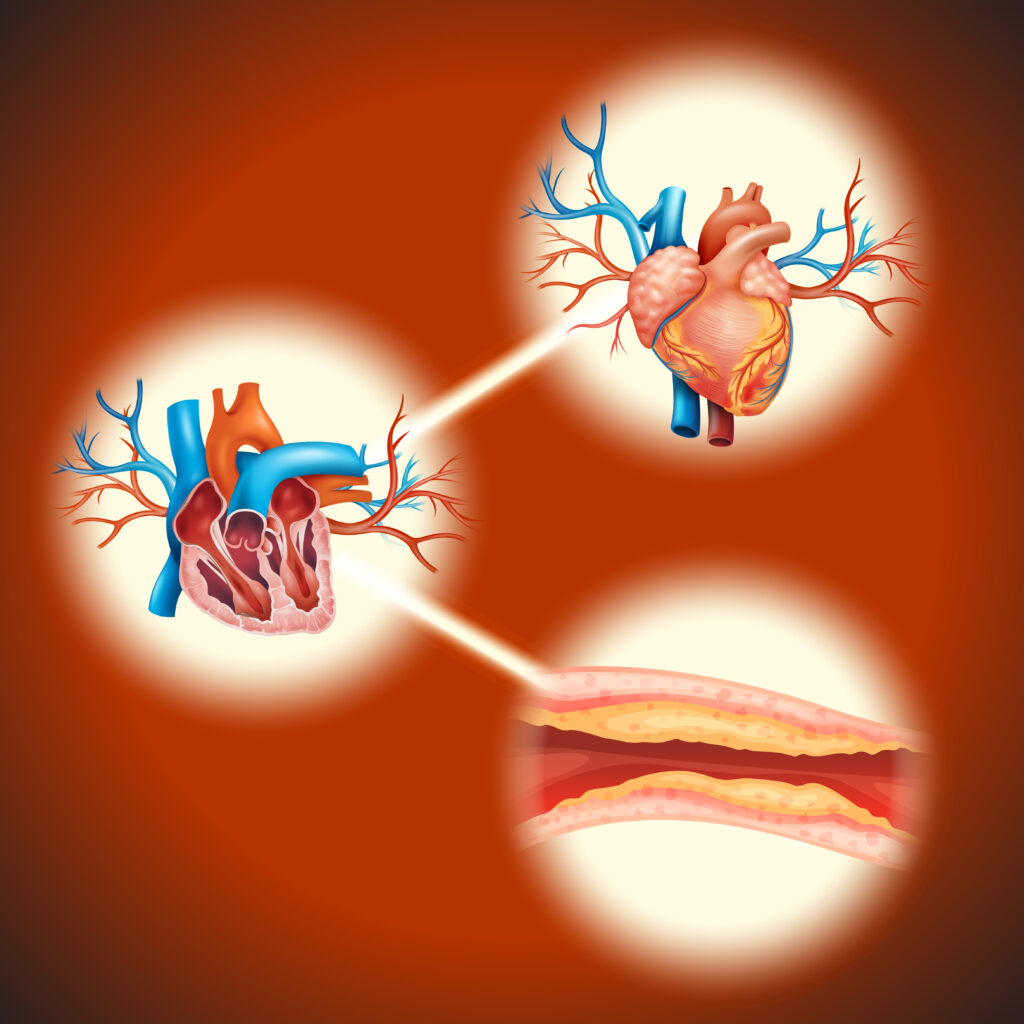
Sinus Bradycardia
The term “sinus bradycardia” describes a heart rate that is lower than usual and is caused by the sinus node, the body’s natural pacemaker. Most persons have a resting heart rate that typically falls between 60 and 100 beats per minute (bpm). Less than 60 beats per minute is the heart rate in sinus bradycardia. Some individuals, particularly athletes, consider a slower heart rate to be normal and an indicator of fitness. For others, though, this slower beat might be a sign of a more serious medical condition.
How the Heartbeat Works
Electrical impulses that pass via particular cardiac channels regulate the heart’s rhythm. These signals, which guarantee that the heart contracts in unison, are started in the sinus node, which is found in the upper right chamber of the heart. We call this periodic electrical activity the sinus rhythm. Since a good sinus rhythm facilitates effective blood flow throughout the body, it is crucial for preserving cardiovascular health. Significant slowing down of this rhythm might result in problems that require medical treatment.
What is Sinus Bradycardia?
A decrease in heart rate brought on by a slowing down of the heart’s electrical impulses is known as sinus bradycardia. It’s critical to distinguish sinus bradycardia from other forms of the condition, such as heart block, which occurs when electrical signals in the heart’s conduction system are either stopped or delayed at different times. Sometimes sinus bradycardia is quite normal, particularly in sleep or in well-trained athletes. However, if aberrant sinus bradycardia produces symptoms or occurs at inappropriate periods, it may indicate an underlying medical condition.
Causes of Sinus Bradycardia
Several factors can contribute to the development of sinus bradycardia, including: Several factors can contribute to the development of sinus bradycardia, including
- Medical Conditions: Sinus bradycardia can arise due to a number of reasons, including:
- Lifestyle Factors: Smoking, drinking too much alcohol, and not exercising can raise the risk.
- Medications: It is known that beta-blockers, calcium channel blockers, and several antiarrhythmic medications lower heart rate.
- Natural Occurrences: Because their hearts are more efficient—that is, they don’t need to beat as quickly to pump blood—athletes frequently suffer from sinus bradycardia.
Symptoms of Sinus Bradycardia
The signs of sinus bradycardia are not always present in patients. When symptoms do appear, though, they might be as follows:
- Fatigue or feeling unusually tired
- Dizziness or lightheadedness
- Shortness of breath, especially during physical activity
- Fainting or near-fainting spells
- Chest pain or discomfort
People may have quite different symptoms from one another, and in certain situations, no symptoms at all. On the other hand, symptoms may be more severe if an underlying illness is the source of the bradycardia. It’s critical to consult a doctor if these symptoms are severe or persistent.
Risk Factors Associated with Sinus Bradycardia
A person may be more likely to develop sinus bradycardia if they have certain risk factors, such as:
- Age: The likelihood of having bradycardia rises with age.
- Medical History: Heart disease and hypothyroidism are two conditions that might increase the risk.
- Genetic Factors: The risk of getting bradycardia may rise if there is a family history of cardiac rhythm issues.
- External Influences: A slowed heart rate can also be brought on by stress, illnesses, or exposure to certain poisons.
How Sinus Bradycardia is Diagnosed
When diagnosing, doctors usually employ many instruments.
- Electrocardiogram (ECG): An ECG can detect a sluggish heart rate by measuring the electrical activity of the heart.
- Holter Monitor: This portable gadget monitors cardiac activity over a 24- to 48-hour period, giving a more complete picture of cardiac health.
- Physical Exam: A doctor may check pulse rates and listen to the heart for irregular rhythms.
- Medical History Review: A thorough review of medications and past health conditions helps identify potential causes of bradycardia.
Is Sinus Bradycardia Dangerous?
“Not every bradycardia case is dangerous. In athletes, a reduced heart rate could be a sign of good cardiovascular health. On the other hand, bradycardia may occasionally indicate a more serious problem, including heart disease. If neglected, it may result in consequences such as heart failure or episodes of fainting. Bradycardia can sometimes result in sudden cardiac arrest, especially when it coexists with other cardiac rhythm disorders.”
Treatment Options for Sinus Bradycardia
The treatment for sinus bradycardia depends on whether the condition is symptomatic and what is causing it:
- Medications: Adjusting or discontinuing medications that may slow the heart rate is often the first step.
- Pacemaker: In severe cases, a pacemaker may be implanted to help regulate the heart’s rhythm.
- Lifestyle Adjustments: Reducing alcohol intake, quitting smoking, and increasing physical activity can improve heart rate regulation. Not all cases of sinus bradycardia require treatment, particularly if the person is asymptomatic and there is no underlying health issue.
Sinus Bradycardia in Athletes
Athletes’ elevated heart rates can cause sinus bradycardia, especially endurance athletes like cyclists and runners. Their hearts don’t need to beat as often since they are pumping more blood with each beat. Usually benign, this kind of bradycardia is an indication of a heart that is well-trained. Athletes must, however, undergo routine examinations to make sure that any underlying issues aren’t being concealed by their decreased heart rate.
Sinus Bradycardia and Other Health Conditions
This can be associated with various health conditions, including:

- Heart Disease: Conditions such as coronary artery disease can lead to bradycardia.
- Sleep Apnea: People with sleep apnea are more prone to having a slow heart rate.
- Hypothyroidism: A low thyroid hormone level can slow down metabolism and the heart rate.
- Neurological Disorders: Certain conditions affecting the nervous system, like stroke or brain injury, can also cause bradycardia.
Preventing Sinus Bradycardia
While sinus bradycardia may not always be preventable, several steps can reduce the risk:
- Lifestyle Changes: Maintaining a healthy diet, regular exercise, and avoiding tobacco use can improve overall heart health.
- Regular Checkups: Monitoring heart health with regular medical checkups can help catch issues early.
- Risk Management: Managing conditions like sleep apnea or hypothyroidism with proper treatment can prevent the development of bradycardia.
Living with Sinus Bradycardia
Many people with bradycardia find that their lifestyle doesn’t need to change significantly. On the other hand, people should keep an eye on their symptoms and contact their physician if they get worse. A full and active life can be achieved by persons with sinus bradycardia via regular checks and education about heart health.

Sinus Bradycardia vs. Other Heart Conditions
It’s critical to differentiate sinus bradycardia from other cardiac rhythm abnormalities such as arrhythmia (an irregular heartbeat) and tachycardia (a rapid heartbeat). While a slowed heart rate is a hallmark of bradycardia, several additional disorders involve distinct kinds of electrical system disturbances in the heart.
Management and Monitoring of Sinus Bradycardia
The treatment of bradycardia is mostly dependent on whether or not it is symptomatic. Asymptomatic cases, especially in athletes or younger, healthier individuals, typically don’t require therapy other than frequent observation. Treatment decisions for symptomatic cases vary depending on the severity, underlying cause, and unique features of each patient. Here’s a closer look into bradycardia treatment:”
- Lifestyle Changes: Changing one’s routine can help control sinus bradycardia symptoms or stop the condition from getting worse. This might entail cutting back on alcohol use, giving up smoking, managing stress, and making sure you get enough exercise. It is recommended that patients with lifestyle-related bradycardia take up heart-healthy routines, such as eating a balanced diet high in fruits, vegetables, whole grains, and lean meats.
- Medication Adjustments:A doctor may change the substance or change the dosage if a medication is producing bradycardia. The heart rate can be slowed down by medications like beta-blockers and calcium channel blockers, which are frequently used to treat excessive blood pressure or cardiac disorders. In many situations, bradycardia can be resolved by stopping or altering these drugs under physician supervision.
- Pacemaker Implantation:A pacemaker may be required if sinus bradycardia presents a risk to the patient’s health or creates significant symptoms. A pacemaker is a tiny, battery-powered gadget that works with the heart to maintain a regular rhythm by delivering electrical signals. People whose bradycardia is brought on by age-related cardiac electrical system deterioration respond well to this medication.
- Monitoring and Regular Checkups:Patients with sinus bradycardia must see a cardiologist on a regular basis, particularly if they are exhibiting symptoms. To make sure that the condition is stable and not developing into more significant cardiac problems, monitoring devices like Holter monitors or event monitors may be employed on a periodic basis to watch heart rhythms.
Complications Associated with Sinus Bradycardia
While sinus bradycardia is often benign, especially in healthy individuals or athletes, it can lead to complications if it’s caused by an underlying medical condition or if the heart rate drops too low. Some potential complications include:
- Syncope (Fainting):Fainting episodes may arise from a decrease in blood supply to the brain brought on by an extremely slow heart rhythm. This might be harmful, especially if it occurs suddenly.
- Heart FailureBradycardia can, in extreme situations, impair the heart’s capacity to pump blood efficiently enough to fulfill the body’s demands, which can result in heart failure. Those with pre-existing cardiac problems are more prone to experience this.
- Sudden Cardiac Arrest:Even though it is uncommon, sinus bradycardia has the potential to cause abrupt cardiac arrest, particularly when it coexists with other severe heart rhythm problems.
- Fatigue and Dizziness:Chronic weariness, vertigo, and a generalized feeling of weakness can result from the body not getting enough oxygen and nutrients due to a persistently sluggish heart rhythm.
When to Seek Medical Attention
If you or someone you know is experiencing any of the following symptoms in addition to sinus bradycardia, it’s critical to get medical help right once:
- persistent lightheadedness or dizziness
- Breathing problems or breathlessness
- Discomfort or pain in the chest
- Periods of fainting or near-drowsiness
- Swelling that is noticeable in the feet, ankles, or legs (a symptom of heart failure)
Regular check-ups are necessary to make sure that bradycardia isn’t developing into a more serious cardiac issue, even if it doesn’t present with any symptoms.

Conclusion:
When it comes to athletes or those who don’t have any symptoms, bradycardia might be a benign condition. For others, however, it can indicate a more serious issue that requires medical attention. If their disease is effectively treated, people with sinus bradycardia can lead healthy lives; nonetheless, regular medical checkups are required to ensure that no serious problems arise.

